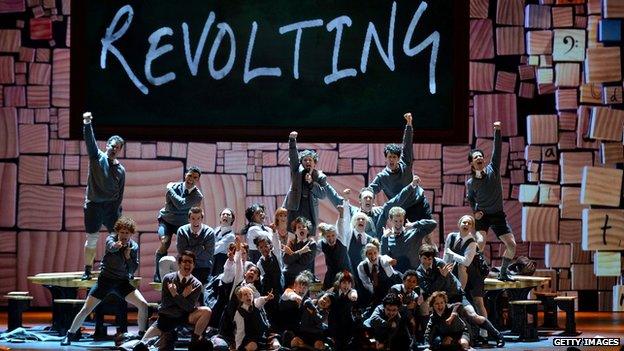Theatre ticket prices rise as venues make up for funding cuts
- Published
Theatre ticket prices increased by more than 5 per cent across the UK last year so what can be done to retain audiences?
Theatre ticket prices rose by more than 5% across the UK last year as venues sought to make up for funding cuts.
The average ticket price outside central London was £23.77 in 2014 - up 5.5% compared with 2013, according to a report from UK Theatre.
The increases come as many theatres have faced cuts to their council and government grants.
The UK Theatre figures do not cover the West End - where the average ticket price rose 5.1% to £42.29 last year.
UK Theatre president Rachel Tackley said: "We're seeing the result of the cuts that we've witnessed over many years and theatres have to make their own decisions about how they're able to cope with those.
"Do they reduce the quantity and quality of their work and numbers of people on stage, or do they put ticket prices up by what is actually not a huge amount?"
Theatre ticket costs
Price rises or falls by region
£23.77
Average price of a ticket after a 5.5% increase on the previous year
-
£27.15 Wales (24.1% rise)
-
£24.09 North East (20.8% rise)
-
£24.35 West Midlands (8.4% drop)
-
£24.33 North West (9.3% drop)
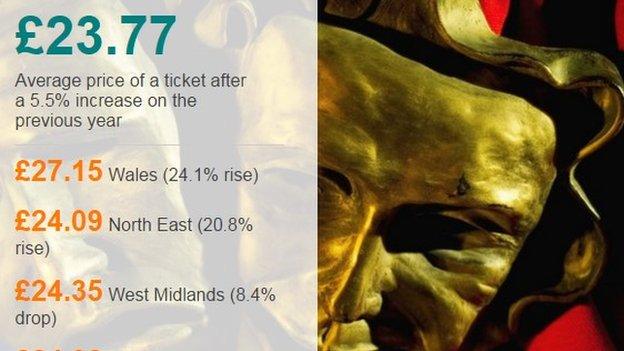
This is the first time comprehensive figures for ticket sales across the country have been compiled.
Prices rose much faster than overall inflation, which was around 1.5% between 2013 and 2014. But the rising prices did not stop people going to shows. More than 18 million tickets were sold in 2014 - up 2.4% since 2013.
Former UK Theatre executive director David Brownlee, who compiled the report, told BBC's Inside Out programme the rising prices were not just down to theatres charging more - theatregoers were also choosing more expensive seats.
"There's also a positive choice there by customers to be buying tickets at higher prices when, in almost all circumstances, they've got a choice in terms of price options," he said.
The rising prices and attendances meant total box office takings outside central London increased by 8% - from £396.9m in 2013 to £428.6m last year.
Musicals were the most popular shows, with five million tickets sold in 2014. Hit touring shows like The Lion King and Wicked meant sales for family-friendly musicals in particular rose 43%.
Demand for plays, on the other hand, was down 7% - from 3.9 million tickets sold in 2013 to 3.6 million last year.
Plays were most popular in the West Midlands - partly because of the presence of the Royal Shakespeare Company in Stratford-upon-Avon.
Opera was most popular in Wales, with comedy big in the east of England and variety particularly successful in the south-west.
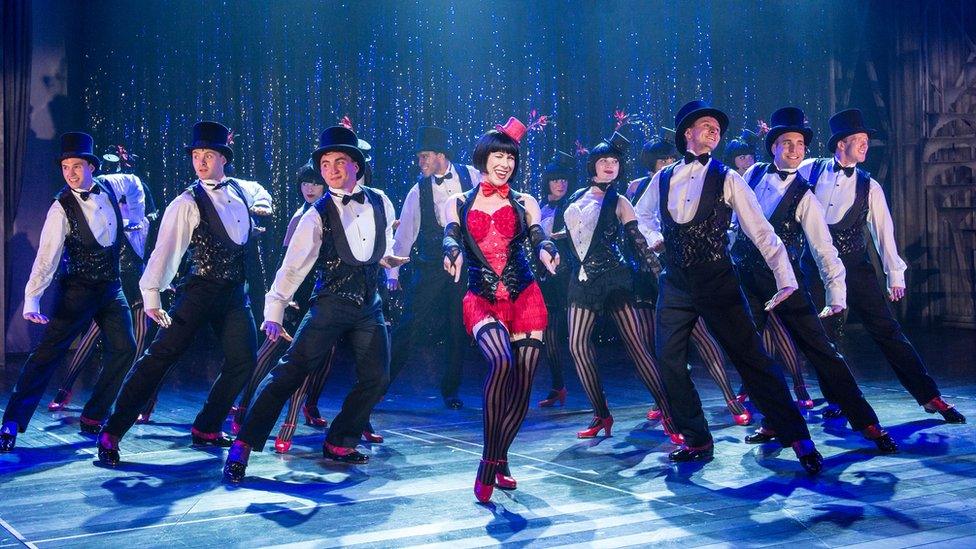
Chichester Festival Theatre has used flexible pricing for shows like Mack and Mabel
Newcastle Theatre Royal is one of those that has suffered funding cuts. Its city council grant, which amounted to £630,000 three years ago, has been scrapped.
Chief executive Philip Bernays said: "We have had to increase our ticket prices, largely through bringing in a booking fee, in order to make up the loss of funding.
"At the same time we have made the programme broadly more popular. Ours was not a hugely risky programme but there is less 'hard' work now on our stage.
"But making the programme popular has increased attendances, so we have both put up prices and we have more people coming through the doors, and the two things together mean we have covered - and more - the loss of funding."
In West Sussex, the Chichester Festival Theatre has lost £300,000 of annual local government funding. In response, it has introduced a flexible pricing system, adding up to £5 to the top ticket prices if shows prove popular once they go on sale.
The strategy earns £100,000 per year, according to executive director Alan Finch. He said: "Because we've lost about 50% of local authority funding, we had to look at how we fill the gap.
"We want to continue to produce work at the same level. Costs are going up and income is going down."
Inside Out is broadcast on BBC One on Monday, 2 November at 19:30 GMT and nationwide thereafter on the iPlayer for 30 days.
- Published19 August 2015
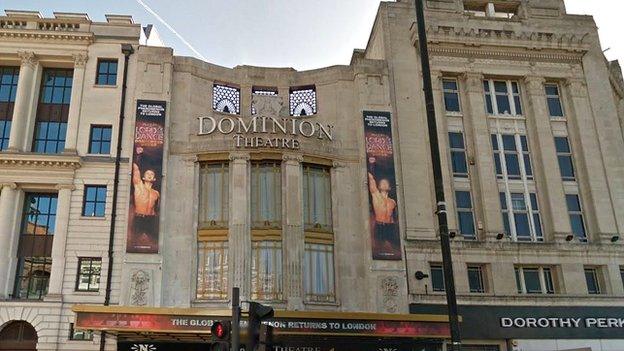
- Published10 July 2015
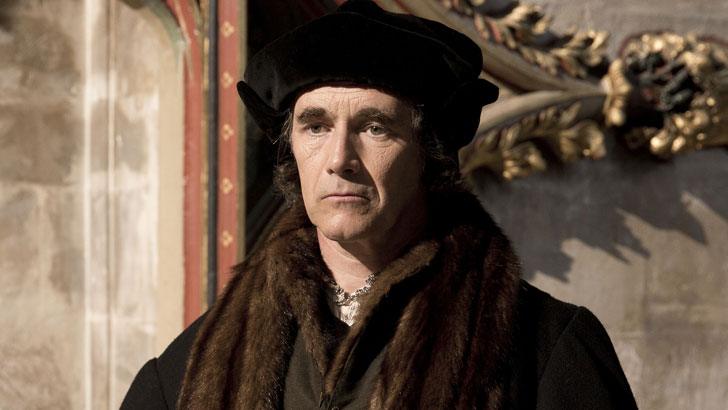
- Published30 March 2015
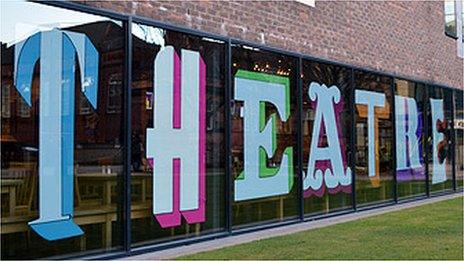
- Published4 February 2015
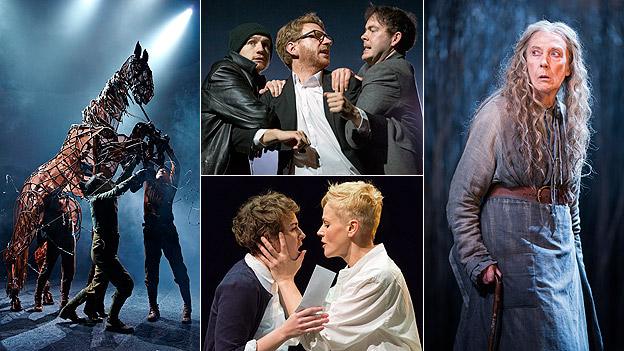
- Published4 February 2015
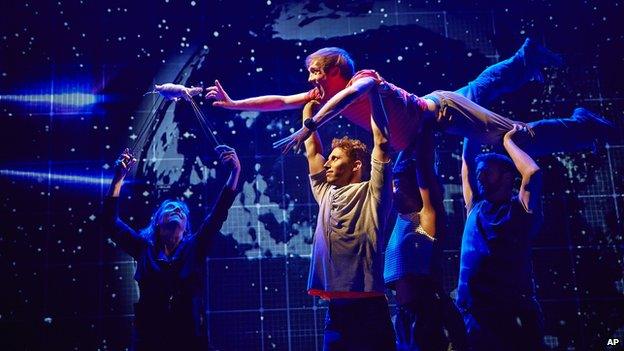
- Published4 February 2015
